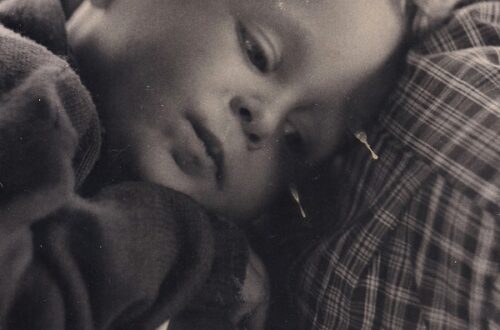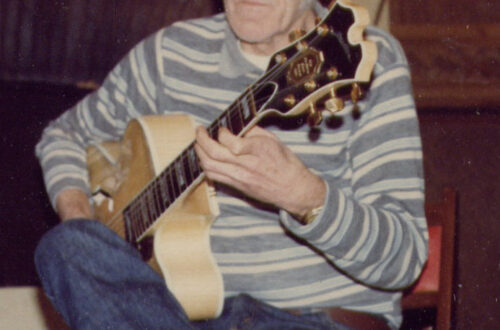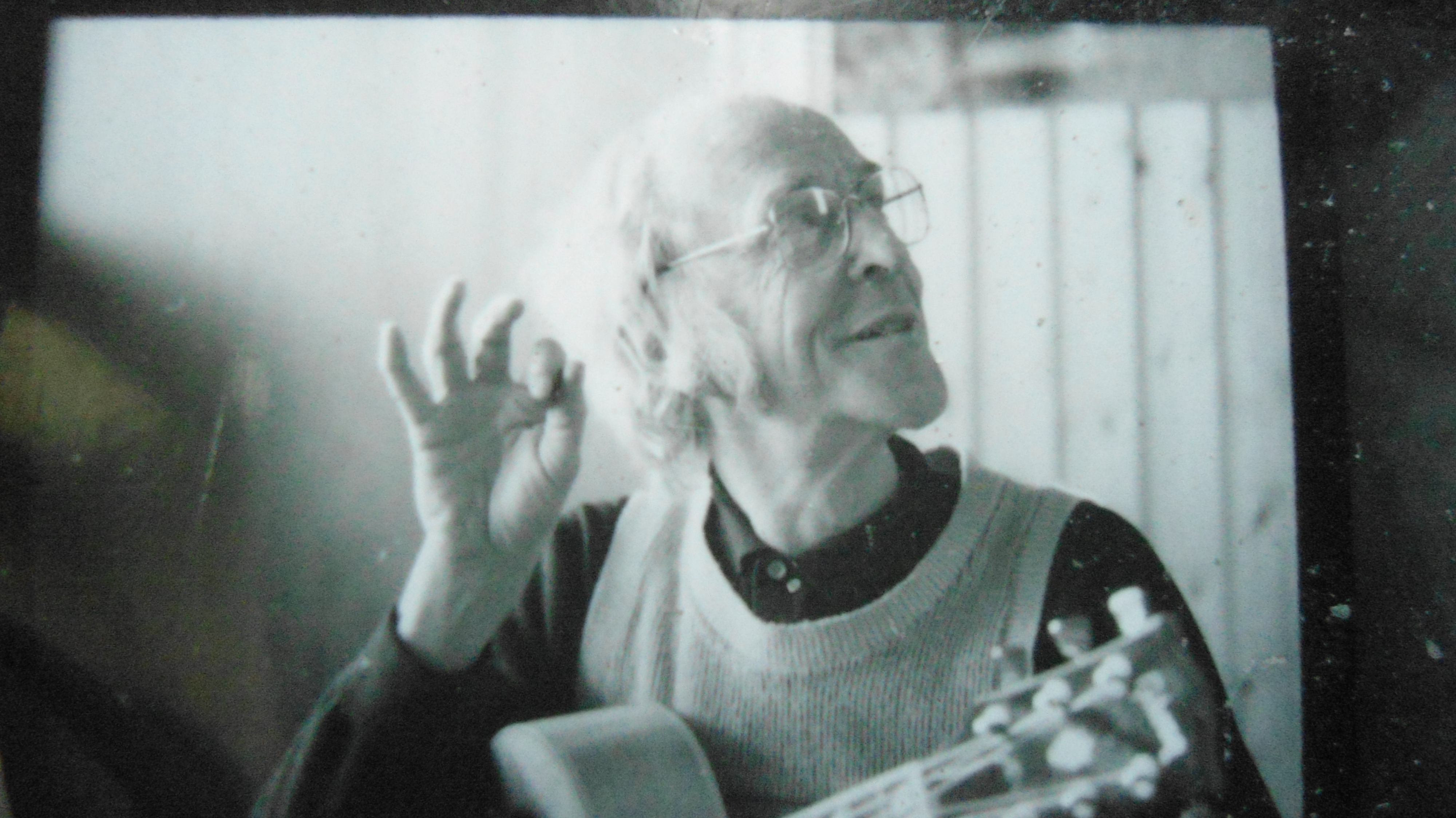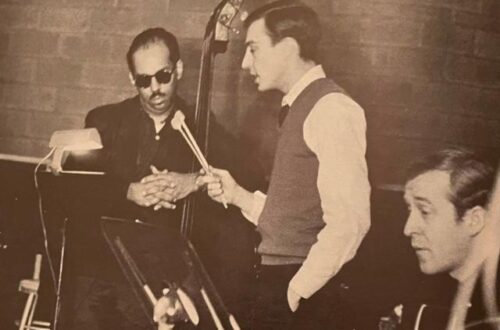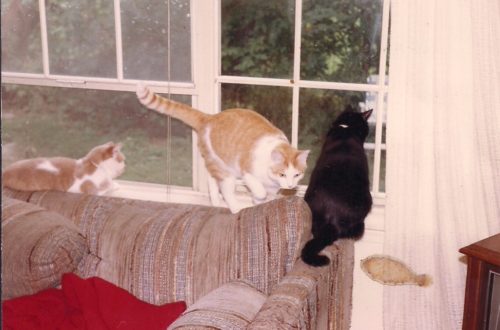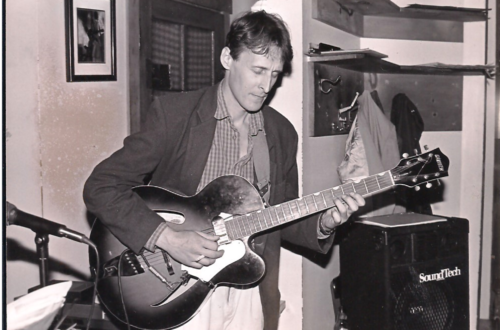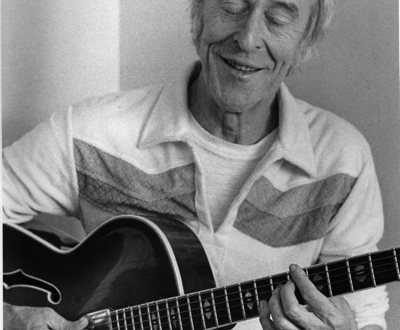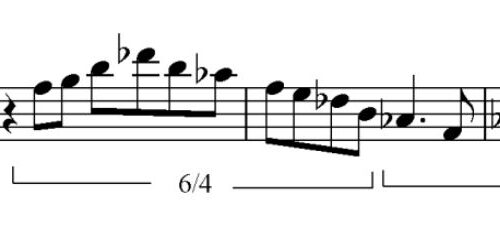Rhythmic subtlety was key in my father’s playing. He picked up on this originally from bebop masters such as Charlie Parker and Bud Powell and also bandmate Stan Getz and then incorporated the concepts wholely as the hallmark of his style. Such things as rhythmic displacement, polyrhythmic grouping and polymetric phrasing were a regular feature in their lines and particularly Jimmy’s. The first Just Friends 5/8 phrase is one I constructed from memory. If it’s not an exact replication, it was very typical of the things he played. The second phrase is from a 1974 live duo recording at Bradley’s. Originally played in key of D(?)The snippet is from last…
-
-
Jimmy Raney Birthday Bonus: NPR Jimmy Raney Memorial show
A tape of the following NPR 1995 broadcast was sent to me by guitarist, Jim Hall. He was interviewed via phone just after the death of Jimmy Raney in 1995. This was originally aired June 4, 1995 by National Public Radio (NPR) and several of Jim Hall’s phone comments were aired. The host of the feature is Tom Cole. Again this short broadcast about Jimmy Raney really spotlights how he was not truly appreciated for his major contribution to the legacy of Jazz guitar and jazz in general as evidenced by the commentary. It’s very poignant and makes me a little sad when I listen to it–for many reasons. But…
-
Happy Birthday Dad!
Happy Birthday Dad! Click the link for a live Jimmy Raney excerpt from Bradley’s 1976 feed://www.jonraney.com/feed/
-
So what do YOU do when you’re driving?
Many people have bad driving habits. Giving the finger, blabbing on the cellphone, fiddling for a station on the stereo, etc. Aside from the obvious vehicular dangers created, this doesn’t seem like very worthwhile behavior. Dad was very good driver but one day he became intrigued by the low pitch he always heard when passing over the bridge. It was at a definite pitch and it was created by the tires passing over those little spaced rivets found on many bridges. Given his fascination for physics he set out to figure out how far apart these rivets were in order to produce the pitch he was hearing at the speed…
-
The Monster cricket
In suburban Louisville where Jimmy Raney lived, there were a lot of crickets out at night. But at some point one of them managed to find a home right outside his front door of the apartment complex (perhaps in a door frame or nearby hallway plant). In the beginning he was curious how this cricket came to be displaced but with a small hallway as a sounding board, and with the cricket showing no signs of leaving, this nightly sound became quite irritating. Finally my father decided to take matters into his own hands. The next night when the cricket started his nightly song, he put a cassette tape recorder…
-
I really should be practicing…
Once you’ve finally gotten that time to yourself, loosened your belt, grabbed some coffee, checked your email, dodged an instant mesage, killed a pop-up, logged off, patted the dog on his haunches, grabbed a hunk of cheese, had second thoughts about the expiration date of said cheese, glanced over at the dog and his look of disapproval (he would’ve enjoyed the cheese more than you) flashed back on something that went wrong at work, contemplated that look of disapproval from your boss (he would’ve enjoyed the day more without the f### up), ruminated on the possibility of something inherent to your thinking patterns that get you into these kinds of…
-
Things Downbeat Never Taught Me
By Jimmy Raney Back in 1939 or 1940, when I was just starting out to be a jazz musician, I was a Downbeat and Metronome freak. I devoured these two magazines in search of news of my heroes. I’m not talking about Benny Goodman or Artie Shaw. They were household words to everybody, as the Gabor sisters, The Grateful Dead and Kentucky Fried Chicken are today. I’m talking about the guys who played jazz on offbeat labels. I knew they all lived in New York City, and had penthouses overlooking Central Park. I went to the movies and saw jazzmen (portrayed by Cary Grant and David Niven) doing just that.…
-
Growing Up Raney
Growing up the son of a musician is a unique experience. But growing up the son of a universally accepted genius in jazz is life defining. Despite his critical reputation, Jimmy Raney’s manner was matter of fact, almost like a librarian in his quiet, understated yet informative and economic manner. Watching him play was marvelous because he was so nonchalant about it. Something about the act of performing a great feat without seemingly trying seems to carry universal appeal. Right leg casually crossed over left, his left hand gripped the guitar purposefully angled for just the right creative leverage. He often kept a cigarette stuck smoking in the strings on…
